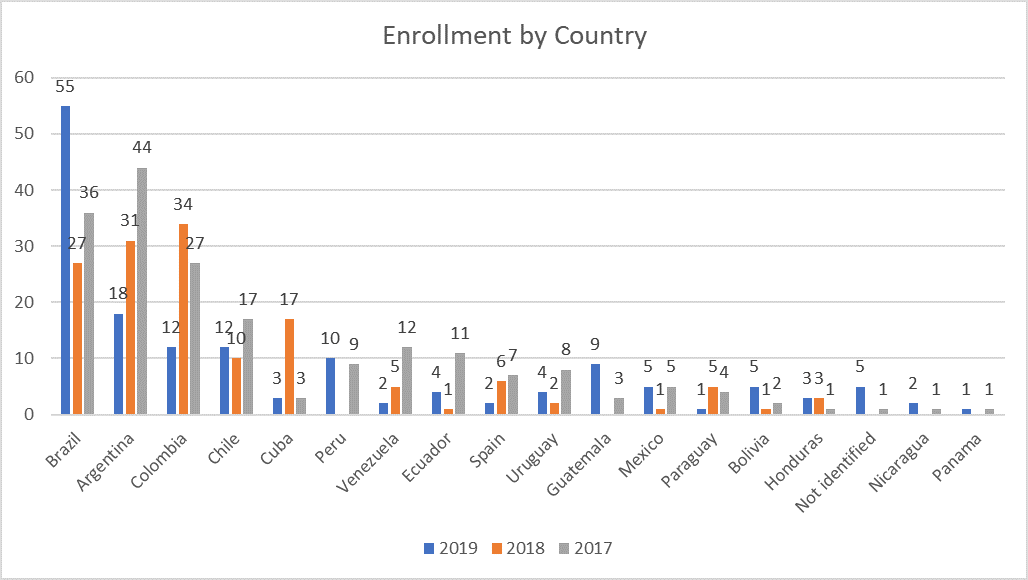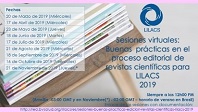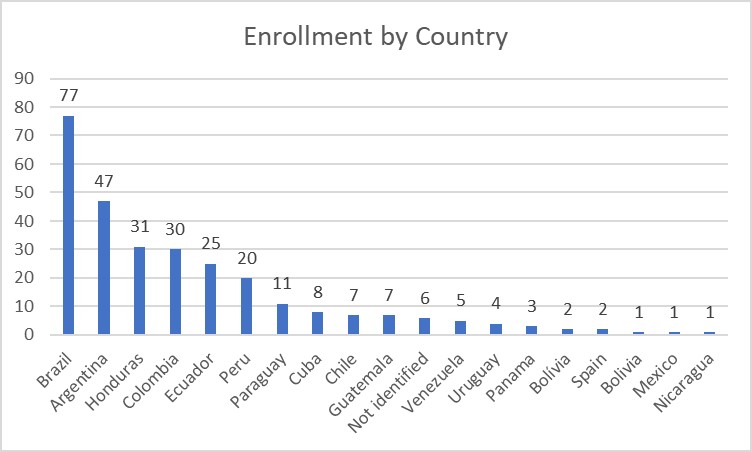One of the pillars of the network developed by BIREME is the development of local capacities in such a way that each of the cooperating institutions have autonomy for the adequacy and application of the methodologies offered by BIREME in their countries and area.
In the 33 years of LILACS, its methodology is adopted by institutions that implant dozens of virtual libraries and national and/or thematic databases in the countries of Latin America and the Caribbean, in Spain and in some African Portuguese-speaking countries.
The LILACS Methodology is applied to information and knowledge management in the Network institutions and includes technology for the development and management of databases, of the cooperation network and of the contribution flow of the databases, in addition to the treatment of information and evaluation of the quality of scientific and technical health information.
These last two aspects – treatment and quality evaluation, two training sessions were idealized, and the results achieved were quite expressive.
1. Virtual sessions on document indexing according to the LILACS Methodology
The indexing of documents is the stage of information treatment where subject descriptors from the DeCS (Health Science Descriptors) are applied, with the objective of representing the content of the document, improving the retrieval of documents through search resources, and for generating infometric analysis.
The LILACS Methodology is based on the rules of indexing recommended by the National Library of Medicine, which performs annual updates in the MeSH (Medical Subject Headings) and in its own rules of indexing.
In the last three years, the main training activities on document indexing were:
- 2017 – Ten virtual sessions for the introduction of basic concepts and main rules of indexing
- 2018 – Eight sessions dedicated to priority topics in public health – psychology, transmissible diseases (viruses), non communicable diseases (diabetes), traditional medicine, integrative and complementary therapies; Specific audiences – adolescents, elderly, mothers, LGBT, national health systems, dentistry; Updates in the DeCS/MeSH descriptors.
- 2019 – nine virtual sessions with the revision of the indexing process for documents, updates in DeCS 2019 and topics of cardiovascular diseases, non-transmissible diseases, nursing, public health, education and physical training, immunology, neglected diseases.
 The methodology created for these virtual training sessions includes a broad disclosure within the VHL Network, practical activities undertaken by the students with feedback from the facilitators, and publishing of presentations and recording of the session on the YouTube channel of the VHL Network.
The methodology created for these virtual training sessions includes a broad disclosure within the VHL Network, practical activities undertaken by the students with feedback from the facilitators, and publishing of presentations and recording of the session on the YouTube channel of the VHL Network.
 The main data related to the participation in the virtual sessions, from 2017 to May 2019, are:
The main data related to the participation in the virtual sessions, from 2017 to May 2019, are:
- 18 countries from Latin America and the Caribbean
- 1 country from out of the Region: Spain
- 178 cooperating centers
- 374 participants (single)
- 1411 participants (total)
 In total, there were 1411 participants in 20 virtual sessions, with an average of 71 participants per session.
In total, there were 1411 participants in 20 virtual sessions, with an average of 71 participants per session.
2. Virtual session on good practices on the editorial process of LILACS scientific journals
 Training of the editorial team of the scientific journals indexed or in process of adequacy to the selection criteria for indexation in LILACS.
Training of the editorial team of the scientific journals indexed or in process of adequacy to the selection criteria for indexation in LILACS.
Nine virtual sessions were planned with the following topics: introduction to LILACS, quality of scientific journals, editorial policy, formation of the editorial team, ethics in scientific publication, peer review, guides for publishing scientific research results, normalization for the publication of articles and scientific divulgation.
For each of the topics, experts were invited to make presentations and answer the participants’ questions.
These sessions were attended by 264 participants form 149 scientific journals from 18 countries:
 In the first three sessions there were 482 participants from 18 countries, with an average of 160 participants per session.
In the first three sessions there were 482 participants from 18 countries, with an average of 160 participants per session.
Advancing towards networks of document indexing databases and scientific journal evaluators
The professionals that integrate the Network totaled almost 1900 participations in 23 virtual sessions carried out. In medium and long term, it is expected that, in addition to an increase in the contribution to the LILACS database, the identification of experts in specific topics and areas will be facilitated, and also they may join the document indexing network according to the LILACS Methodology and the Network of Evaluation of LILACS Scientific Journals.
The objective of these Networks is to guarantee a broad discussion for the update and adequacy of the LILACS Methodology to the local context of the institutions, without forgetting the methodological and technological advances in the field of health information and performing training and monitoring activities on the quality of the scientific journals and of the information on the databases.
According to Sueli Suga, BIREME’s supervisor of Referential Information Sources, “there is still a long way to go, but the immediate result is definitely the amplification and deepening of the knowledge on these topics and the immediate application of this learning in general improvements in the quality of scientific health journals and their incorporation to the LILACS database”.